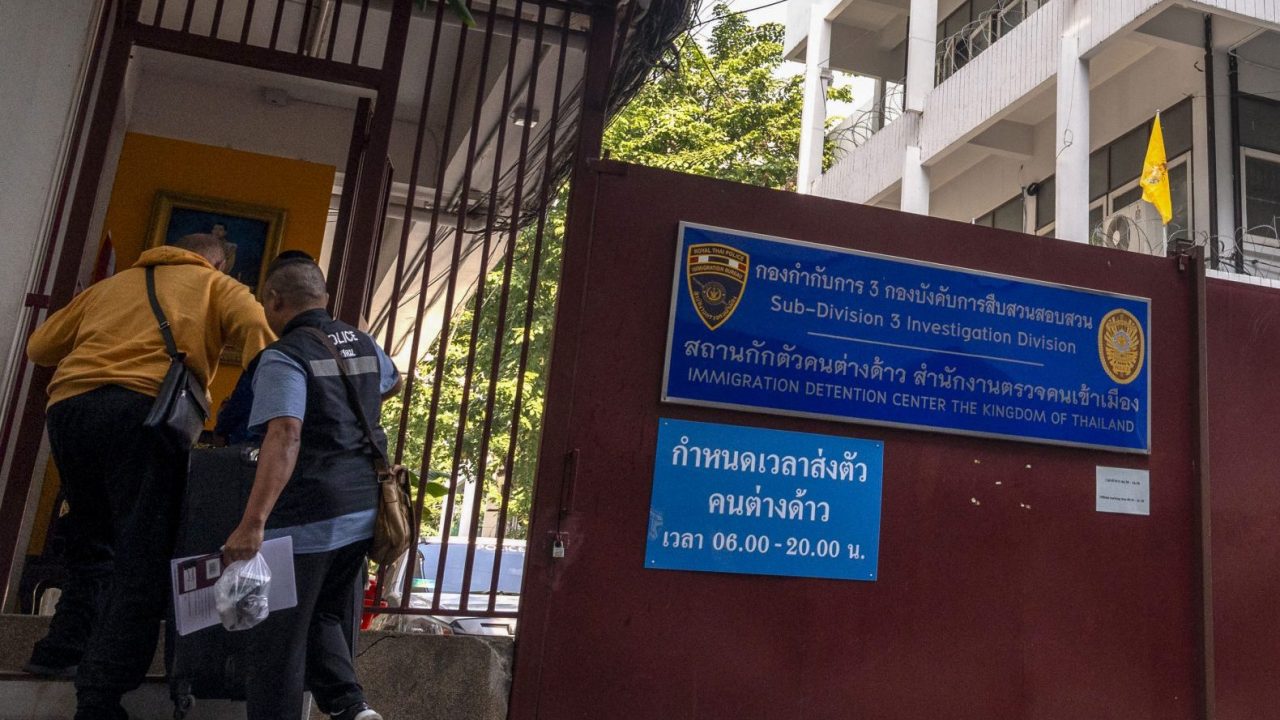Thailand has been dealing with the fallout of deporting 40 Uyghurs back to China — a move that has outraged human right activists and alliesImage: CHANAKARN LAOSARAKHAM/AFP/Getty Images
The recent deportation of more than 40 Uyghur refugees from Thailand has ignited global outrage, and raised questions about Bangkok's geopolitical stance between China and the West.
DW, 25 March 2025
After weeks of diplomatic maneuvering and ambiguous statements, Thai authorities deported a group of 40 Uyghur men to China last month.
The United States and several human rights organizations had spent months warning against such a move, arguing that the deportees will almost certainly face persecution, arbitrary detention, or worse under the Chinese government.
The Uyghurs, a Turkic-speaking predominantly Muslim minority from China's northwestern Xinjiang province, have endured years of repression by Chinese authorities. Washington has officially labeled China's actions as "genocide."
The recent deportation incident echoes a similar episode in 2015, when the Thai government forcibly repatriated over 100 Uyghur refugees to China, prompting global outrage and sparking protests across the Muslim world.
Ahead of the latest deportations, the US State Department issued several warnings, calling on Bangkok to respect its obligations under international law, particularly the principle of non-refoulement, which prohibits returning individuals to a country where they are at risk of torture, cruel treatment, punishment or other serious harm.
Backlash against Bangkok
On February 27, the day of the deportations, Germany's foreign office criticized the move in a statement.
"The deportation violates the principle, enshrined in international law, of not returning people to countries where they face serious human rights violations," it said.

US Secretary of State Marco Rubio also expressed disappointment with the US ally, condemning the deportations "in the strongest possible terms," while his department this month slapped visa sanctions on Thai government officials complicit in the deportations.
The European Commission also condemned Bangkok's decision. In a resolution passed on March 13, the European Parliament called on Thailand to immediately halt further deportations and provide transparency around its refugee policies.
Many analysts agree that Thailand's decision was a calculated move to curry favor with China, which has long demanded the return of Uyghur refugees from abroad.
The deportations come at a time when Beijing has been actively seeking to deepen its ties with Bangkok, particularly over the vast cyberscam industry that has infected most of Thailand's neighbors.
"Did Thailand do it to appease Beijing? Yes. But is Thailand ditching the West in favor of China? No, absolutely not," , a Thai analyst and columnist, told DW. "Thailand is playing its usual balancing act and, in this case, it is simply prioritizing immediate interests."
Growth trumps human rights
Analysts widely view the move as being driven more by economic pragmatism than ideological alignment.
"Thailand is clearly not thinking about the wellbeing of Chinese dissidents, and it clearly hasn't thought about the near-term damage to its reputation," Mark Cogan, an associate professor of peace and conflict studies at Kansai Gaidai University in Osaka, told DW.
Instead, it is thinking about the one thing that matters most to Thai Prime Minister Paetongtarn Shinawatra — economic growth. "Right now, that is more likely with China than that of the United States," Cogan said.
Thailand's economy has been in the doldrums for years and is expected to grow by just 2.5% in 2025, about the same as last year, according to government data. Among the many concerns for Bangkok is the country's tourism sector, which accounts for around one-tenth of the GDP.
One of the biggest dents to this sector has been the hesitance of Chinese tourists to return in large numbers since the COVID pandemic.
A primary reason is the apparent belief that Thailand is unsafe, an image that had previously been propagated by Beijing as part of its efforts to pressure Southeast Asian governments into tackling their scam centers.
The United States Institute of Peace estimates that this illicit industry could be worth between a quarter and a third of the formal economies of Cambodia, Laos, Myanmar — Thailand's neighbors.
Many of the scam compounds are found in towns near the Thai border, and Thailand is a key transit point in the trafficking of people who are subjected to forced labor at these compounds.
In January, 31-year-old Chinese actor Wang Xing, who also uses Xingxing as a screen name, was rescued from a Myanmar-based cyberscam compound after being kidnapped in Thailand.
He was returned to Thailand following a social media outcry in China.
According to Napon Jatusripitak, a visiting fellow at the ISEAS–Yusof Ishak Institute, Bangkok is particularly "hell-bent" on drawing in Chinese tourists.
"However, this goal could be jeopardized by ongoing reports of safety concerns for Chinese visitors — or by Beijing's failure to reassure its own citizens," he added.

